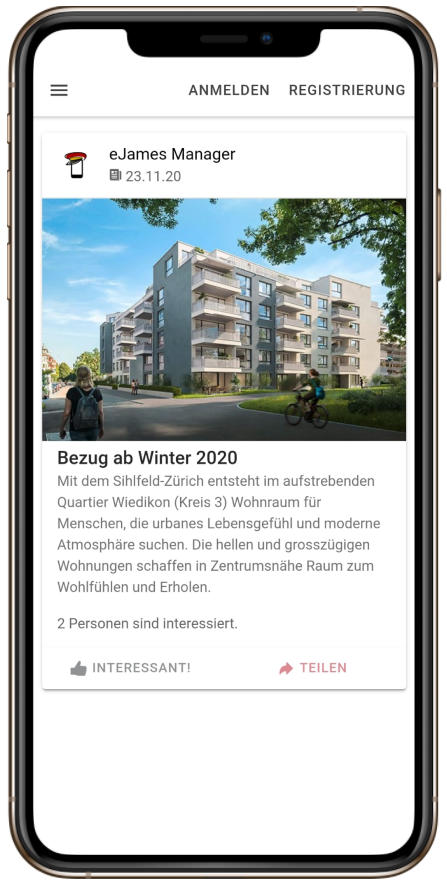🌳🏡🌳
Summary
Why?
The Grossmatte in Littau and the Schweighof in Kriens are newly established resident areas. Both projects seek to reach the goals of the 2000-Watt-Society. There is a gap between the site owners and the resident’s interests regarding the achievement of the 2000-Watt goals. The main question is, how do site owners encourage residents to alter their lifestyles to be more in line with the 2000-Watt goals? Also, there is a lack of identification of the residents with their neighborhood.
What?
Currently, the residents can use an app, which displays all the information about their apartment’s consumption. However, there is no possibility to compare their stats with other residents. Hence, they don’t know whether their consumption is high or low in relation to other apartments. We therefore suggest, to put this information into context by introducing a comparison method which figures as an information tool as well as an incentive system.
How?
Our idea is to introduce a ranking, which compares the individual consumption to the neighbor’s consumptions. This ranking could be either included into the currently used app or displayed on screens in the hallways. Based on this ranking, a recommender system could be implemented, which informs the user about possible ways of reducing their consumption and improving their ranking. Finally, for example every year, the best couple of apartments could be offered a benefit. Possible are financial, physical or digital benefits. We recommend including all the services available on the 2000-Watt site when defining the benefits. For example, coupons for stores and coffee shops might foster the social life and the identification of the residents with the site. Apart from stores and coffee shops, coupons for the car sharing service might help to introduce people to the car sharing concept and reduce “usage barriers”.
Process and Methods
Findings & Obstacles
In order to implement an effective incentive system, the comparability of the consumption data is inevitable. The apartments differ in size and in the count of inhabitants, which might distort the ranking in an unfair way. As well as the algorithm, the incentive is a crucial part of the system. The ETH Zürich, together with the EWZ, conducted a research project, which studied the effectiveness of different forms of incentives on reducing energy consumption.
Bonusmodelle für energieeffiziente Haushalte - EWZPrototype
Test our two different prototyps and click on the phone or on the desktop image.

Outlook
First, the project would have to be evaluated and approved by the investors. Then a team of experts and developers would have to be assembled to continue the project. For this purpose, a data pool with all necessary data would have to be set up, which could then be used for the calculations. To continue this project, we would recommend that the project team would exchange information with the EWZ and thus benefit from their experience.
Data & Informations:
2000-Watt-Site Schweighof, Kriens2000-Watt-Site Grossmatte, Littau
Catalogue of criteria
Previous
Shape My City
Next project


